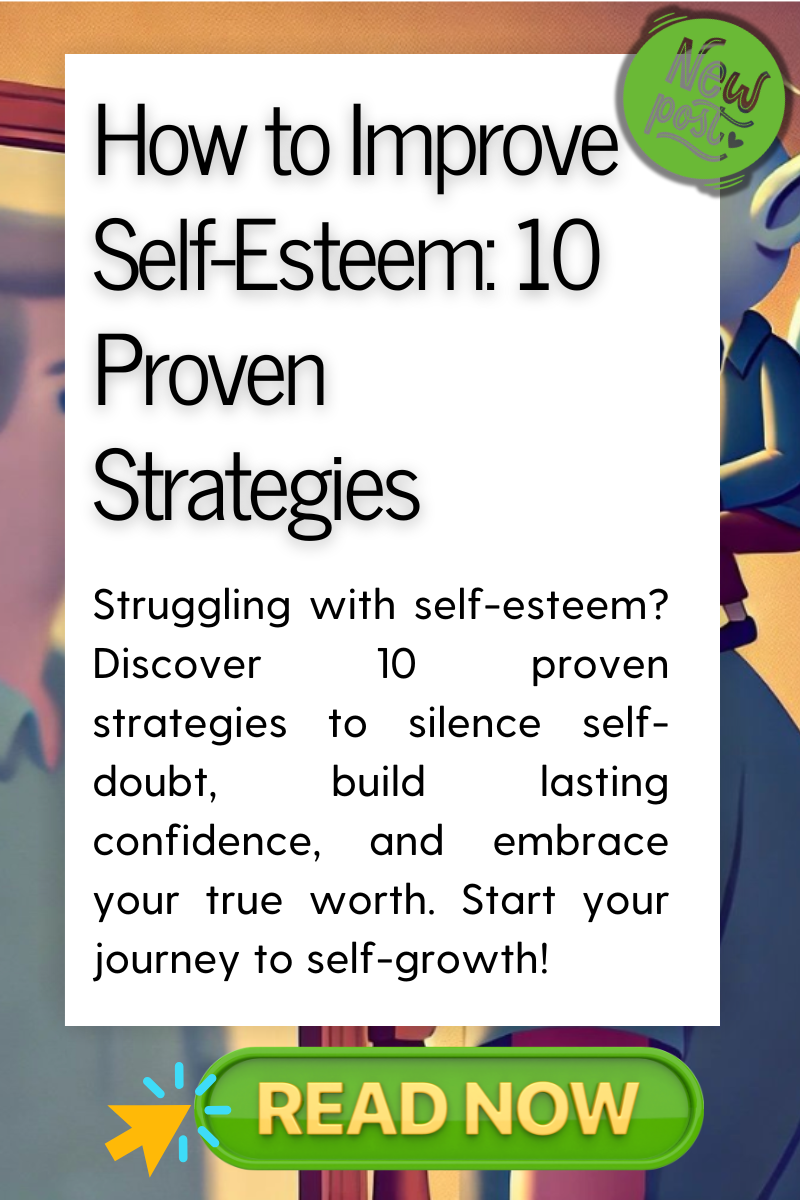7 Clear Signs Someone Is Projecting Insecurities
When Their Story Doesn’t Fit the Scene
You’ve been there.
Someone lashes out at you… but the script doesn’t match the play.
The emotion is too big for the moment. The accusation feels off, like they’ve mistaken you for someone else entirely.
That’s projection. A classic psychological defense mechanism. Instead of owning their own insecurities, they hand them to you like a backpack you never signed up to carry.
It shows up in everyday life: a partner blaming you for being distant when they’re the one pulling away. A coworker nitpicking your work because they secretly doubt their own. A family member accusing you of selfishness while quietly stewing in their own unmet needs.
It’s not always malicious. In fact, projection is the mind’s clumsy way of dodging uncomfortable emotions. It’s the psyche whispering: “This is too much for me — here, you hold it.”
This guide is about noticing the patterns. About spotting the tells that someone else’s storm is spilling into your sky. When you know the signs of projection, you stop internalizing every dart that gets thrown your way.
And maybe, just maybe, you start seeing projection not as an attack — but as a mirror, reflecting what the other person hasn’t learned to face.
What Is Projection in Psychology?
Projection is one of the oldest tricks in the brain’s survival playbook. When a feeling is too heavy, too shameful, or too risky to face — the mind takes that weight and tosses it onto someone else.
In psychology, this is called a defense mechanism. Instead of saying “I feel jealous,” a person might snap: “You’re the jealous one.” Instead of owning anger, they see it blazing in your eyes. Their own insecurities sneak out, disguised as accusations.
Carl Jung, the Swiss psychologist, described this as the “shadow” — the hidden parts of ourselves we’d rather keep in the dark. But shadows don’t stay buried. They leak into our interactions, shaping what we see in others.
Projection isn’t always negative. There’s positive projection too: when someone paints you with their own untapped brilliance — seeing you as more confident, capable, or kind than they currently believe themselves to be. It’s still about them… but in a flattering costume.
There are different types of projection psychologists talk about:
Defensive projection: unloading the traits you don’t want to admit.
Neurotic projection: when inner conflict creates extreme, distorted blame.
Complementary projection: expecting others to think or feel exactly as you do.
Whether it’s harsh or hopeful, projection is always the same psychological phenomenon: an unconscious process of exporting what’s inside to the world outside.
The tricky part? Once you see it, you can’t unsee it. And that awareness is the first step toward healthier relationships — because you stop confusing someone else’s shadow for your own reflection.
Why People Project: Insecurities in Disguise
At its core, projection is camouflage.
When someone can’t stand the glare of their own flaws, they throw a sheet over them by pointing to yours.
It’s not usually conscious. Nobody wakes up and thinks, “Today I’ll deny my pain by blaming my partner.” But the psyche is clever. It hides what feels unbearable — shame, guilt, fear, regret — and sends it out wearing your name tag.
Think of projection as tossing a hot potato of uncomfortable emotions. Instead of holding onto the burn, they fling it into your hands. Now you’re the selfish one. You’re the lazy one. You’re the “problem.”
This is why so many projections sting with intensity. They’re not casual comments — they’re charged with the person’s unresolved issues and buried history. Old wounds get disguised as present truths.
A boss who criticizes your work ethic may be drowning in doubt about their own.
A partner who accuses you of dishonesty may still be tangled up in secrets they’ve never spoken.
A friend who nitpicks your choices may be wrestling with their own lack of direction.
Beneath the blame sits low self-esteem and an ongoing battle with identity. Projection is the mind’s way of saying: “I can’t bear to see this in myself… so I’ll see it in you.”
It may cause emotional distress on the receiving end, but remembering this changes the game. You stop internalizing every harsh word. You start realizing: their story says more about them than it does about you.
7 Clear Signs Someone Is Projecting Insecurities
1. Strong Emotional Reactions That Don’t Fit the Moment
You spill a little coffee on the counter… and they explode.
The anger is volcanic, but the spark was tiny.
That’s the giveaway: the emotion is about something deeper, not the mess in front of them.
When someone reacts with emotional turmoil far beyond what the situation calls for, you’re not just facing irritation — you’re facing a storm fueled by unresolved issues. Their shadow is driving the bus.
2. False Accusations That Mirror Their Own Behavior
They accuse you of lying… when they’re the one bending the truth.
They call you selfish… but you’ve watched them guard their own time like treasure.
Projection is a hall of mirrors. The false accusations they hurl are often exact reflections of their own flaws. It’s less about you — more about their need to dodge responsibility.
3. Personal Attacks Disguised as “Honesty”
“Just being real,” they say, while pointing out everything “wrong” with you.
But their sharp words cut too close to their own insecurities.
Often these negative comments are thinly veiled personal attacks. The truth? They’re naming the very traits they can’t accept in themselves. Like graffiti, the insults reveal more about the writer than the wall.
4. Constant Defensiveness or Playing the Victim
Ever notice how some people are never wrong?
Every slip, every conflict, every misunderstanding… somehow ends up pinned on someone else.
This is defensive projection at work. Instead of facing their own mistakes, they flip the script. They become the “innocent” party, and you’re cast as the guilty one.
It’s an exhausting dance — but also a clear sign the blame doesn’t belong to you.
5. Blame in Romantic Relationships
In love, projection wears a heavy mask.
Your partner says you’re pulling away, but you can feel them retreating. They accuse you of being distracted, when they’re the one scrolling late into the night.
In romantic relationships, projection can be especially painful. It breeds distance, because you end up defending yourself instead of connecting.
When someone blames a romantic partner for their own hidden struggles, the relationship becomes less about truth and more about dodging shadows.
6. Overly Critical of Others’ Success or Qualities
They see your confidence… and call it arrogance.
They hear your ideas… and label them naïve.
Often, criticism of others’ strengths reveals a crack in the critic’s armor. This is where complementary projection and envy collide. They’re threatened by what they haven’t cultivated in themselves.
It’s less about your “flaws” and more about the mirror you unintentionally hold up to their own insecurities.
7. A Red Flag Pattern Across Family and Friends
Projection doesn’t stay contained.
If you notice the same accusations showing up with a family member, a coworker, and even a stranger on the road… it’s not coincidence.
This repeating pattern is a red flag. It signals deep inner conflicts and a refusal to face the shadow within.
The good news? Once you see the cycle, you can step outside of it. You don’t have to carry someone else’s story anymore.
✨ Together, these signs remind us: projection is always more about the projector than the target. It’s the unconscious trying to find relief by handing its discomfort to someone else.
How to Respond When Someone Projects Onto You
The hard part of projection isn’t spotting it.
It’s deciding what to do once the weight gets tossed into your lap.
1. Remember: It’s About Them, Not You
When the words sting, pause.
Ask yourself: Does this really belong to me?
Most of the time, projection says more about their own insecurities than your truth.
2. Stay Grounded in Your Own Feelings
Breathe.
Check in with your body.
Notice the difference between their storm and your weather.
That separation restores your sense of self.
3. Use Open Communication (When It’s Safe)
Sometimes naming the pattern gently works:
“I hear you… but that doesn’t feel like mine.”
This opens a door to healthier relationships — as long as the other person is willing to step through it.
4. Protect Your Energy
Not every projection deserves a response.
Silence can be a shield. Boundaries can be love. Walking away can be wisdom.
5. Seek Support if the Cycle Runs Deep
If projection becomes a constant source of emotional distress, don’t carry it alone. Talking with a coach, therapist, or trusted guide can help you untangle what belongs to you — and return the rest.
Projection may be the mind’s way of dodging pain.
But your response? That’s where real power lives.
Key Insights: The Mirror Is Always Double-Sided
Projection isn’t just about blame.
It’s about reflection.
When someone hurls accusations that don’t fit, they’re really wrestling with a part of themselves they can’t yet face. Their shadow slips into your story, trying to find release.
The gift — if you can call it that — is clarity. Once you recognize the signs of projection, you stop confusing someone else’s unresolved battles with your own identity. You begin to protect your sense of self.
And maybe you notice something else: your own projections. Because we all do it. We all hand off uncomfortable truths now and then. Seeing it in others gives us the courage to see it in ourselves.
The mirror, after all, reflects both ways.
🖋 Journal prompt:
Next time I feel accused of something that doesn’t sit right… what if I asked myself, “Whose story is this really… and what story is mine to tell?”
What’s Next?
Want help untangling these patterns in your own life?
Josh offers coaching sessions designed to turn projection into insight — building stronger self-awareness, healthier relationships, and a clearer sense of self.
Join the Conversation
This post is one side of the story… the other side is yours. What came up for you?
FAQ: Signs of Projection and How to Handle Them
1. What is the concept of projection in psychology?
Projection is a psychological projection — a defense mechanism where someone attributes their own thoughts, negative traits, or unacceptable feelings to another person. Psychologist Carl Jung described it as part of the “shadow,” the hidden dark side of the psyche. Noticing it is often the first sign of projection.
👉 If you’re curious how this plays out in your own story, Josh can help you explore it with clarity in a free consultation.
2. What’s the difference between negative projection and positive projection?
Negative projection is when someone unloads their own issues, negative emotions, or internal struggles onto you — often as a personal attack.
Positive projection is when people see their basis of wonderful qualities in you: kindness, intelligence, even courage they haven’t owned yet. Both are forms of projection, but one tears down while the other lifts up.
3. What are some common examples of projection in everyday life?
A partner with romantic feelings they can’t admit accuses their current partner of being too needy.
A parent projects their own unacceptable urges onto a child’s experience.
A boss, overwhelmed by past traumas, criticizes your work ethic as if you’re the guilty party.
These are different ways the unconscious seeks relief through projection.
4. Can projection come from early childhood or past experiences?
Yes. Many projections trace back to early childhood or unresolved past experiences. If a child’s experience taught them that anger was an unacceptable part of their identity, they may grow up seeing that anger everywhere else. These patterns often play a significant role in adult close relationships.
5. How can I tell if projection is happening in my romantic relationships?
In love, projection can show up as blame, jealousy, or mistrust. A romantic partner may accuse you of dishonesty when it’s really their own beliefs or previous relationship wounds resurfacing. Watching for these following signs — blame without cause, lack of empathy, or repetitive accusations — helps you protect your sense of self.
6. Are there extreme forms of projection?
Yes. While projection is common, extreme forms can look like projective identification — where someone not only projects but pressures you into embodying the role they’ve assigned. This can cause difficult emotions, uncomfortable feelings, and difficult interactions that spiral into long-term harm. Some psychologists even rank unchecked projection among the most dangerous psychological mistakes we can make in relationships.
7. Why do projections feel so painful?
Because projections tap into your own emotions, past traumas, and core experiences. Even when the accusation isn’t true, it stirs up feelings of guilt, perception of reality distortions, and unconscious discomfort. It can feel like an attack on your own body, own actions, or own negative qualities — even if those qualities don’t actually belong to you.
8. How do projections affect mental health in the long run?
Constant exposure to projection can lead to emotional responses like stress, self-doubt, and even a weakened sense of identity. Over the long run, it chips away at mental resilience, especially if it comes from close relationships or family. The good news: learning to spot the signs of projection is also a path to personal growth and stronger boundaries.
9. How can I cope with projection in different situations?
There are different ways to respond:
Build conscious awareness so you can separate your story from theirs.
Use boundaries as a protector part of yourself.
Journal your own thoughts and own emotions to reclaim what’s yours.
Seek professional help if the projections create ongoing internal conflicts or distress.
10. How do I stop projecting my own issues onto others?
The hardest truth: we all project sometimes. The key is noticing.
Pause during difficult interactions and ask, “Am I naming my own issues here?”
Reflect on own beliefs, own unacceptable urges, and uncomfortable emotions.
Practice compassion: projections are the psyche’s clumsy coping mechanism for pain.
Even on TikTok you’ll find people making jokes — “POV: You accuse your friend of the very things you’re secretly doing” — because the pattern is that universal. Like a movie projector projects onto a screen, we all cast images of ourselves onto others. The work is learning to notice when the reel is running.
More Questions?
👉 If you’re ready to turn projection into insight — and build healthier, more authentic connections — Josh can walk with you through that process with a free 15-minute life coaching consultation.
Essential Reads for Understanding Psychological Projection
Owning Your Own Shadow — Robert A. Johnson
A clear, compassionate primer on the shadow… why we disown parts of ourselves and project them onto others. Short, poetic, and practical. Great for building conscious awareness, easing internal conflicts, and strengthening your sense of self over the long run.
No Bad Parts — Richard C. Schwartz, PhD (IFS)
A gentle guide to the protector parts inside you and the hurts they’re guarding. If projection is a coping mechanism, this book shows different ways to meet it with curiosity… so close relationships feel safer and more honest.
Radical Acceptance — Tara Brach
For the moments when projection stirs shame or old stories. This book helps you befriend uncomfortable feelings and past experiences without collapsing into them. Kind, grounded… and quietly transformative for mental health.
The Drama of the Gifted Child — Alice Miller
A piercing look at early childhood imprints that often fuel projection in adult life. Not always easy… but illuminating. Helps you untangle what was never yours to carry, and choose healthier patterns in present-day connections.
Turn Projections into Clarity
Prefer real help over more reading? Schedule a free coaching consultation and we’ll build a simple, workable plan.
Work with Josh — Clarity Over Blame
If projection is stealing your peace, let’s turn it into a map. In coaching, we’ll separate what’s yours from what isn’t, calm the nervous system, and practice direct conversations that protect your sense of self. You’ll leave with simple tools to pause, name the pattern, and choose a different response in the moments that matter.
This isn’t therapy, and it isn’t lecture. It’s practical, human coaching for your real life — relationships, work, family — with space for the deeper stuff when it shows up. You set the pace. You keep the steering wheel.
If you’re ready for grounded change and healthier relationships, I’m here.
👉 Book a free consultation to see if it’s a fit.
























